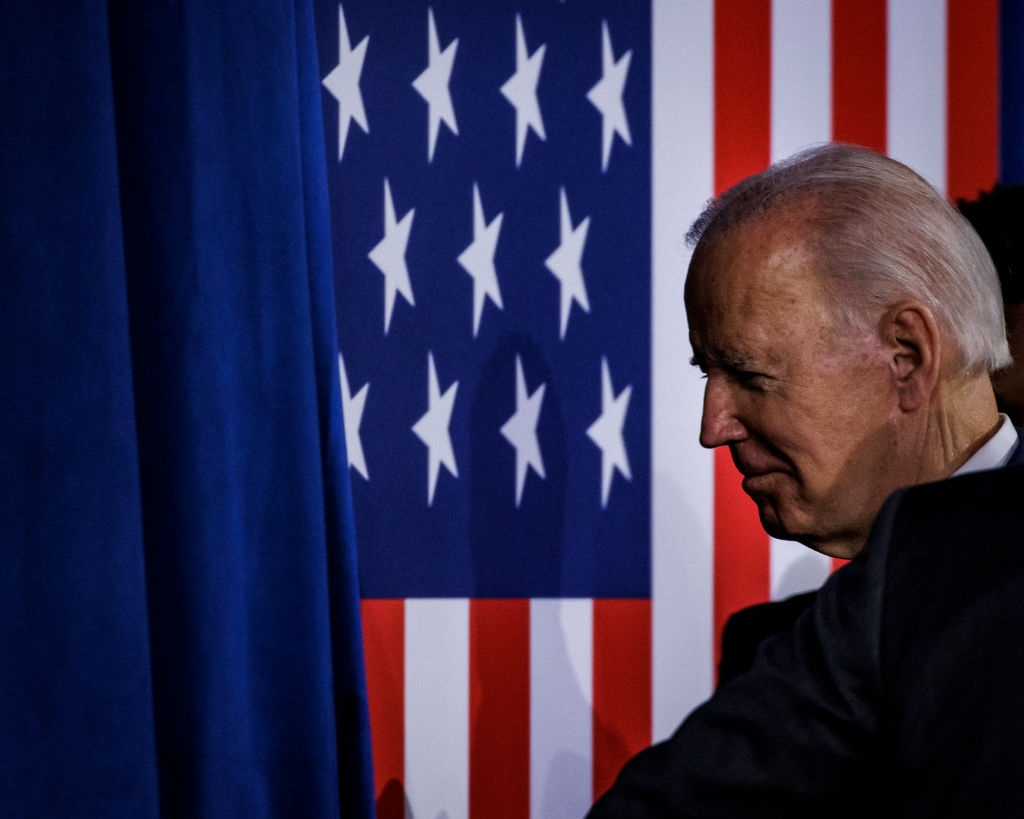Pro-choice voters made their choice and beat back a wave of Republican candidates

Democrats were dreading America’s midterms, over fears President Biden would be punished in the voting booth. But to Republican disappointment, a much-vaunted “red wave” proved itself an anti-climactic no-show. Though it looks like Republicans will narrowly succeed in flipping the House, Democrats have retained the Senate and are patting themselves on the back.
As political data nerds, pundits, and disgruntled Republicans sift through the results and what they augur ahead of the 2024 presidential election, the central role played by one issue in buoying up Democratic performance is clear: abortion.
2022 has not been a good year for the American woman’s right to choose. June saw the US Supreme Court overturn its famous Roe v Wade ruling which, since 1973, had been the foundation stone of reproductive rights in America by effectively repealing state laws banning the procedure. As thirteen states already had so-called trigger laws in place to immediately and automatically ban abortion upon Roe’s overturn, 36 million women of reproductive age lost the legal right to choose on that single day in the early summer. Since then, the number of states who have banned or restricted abortion post-Roe has risen to seventeen and more are predicted to follow.
But far from being a nation unified against the right to choose, six in ten Americans actually believe that abortion should be legal in all or most cases. In fact, what these midterm results show us is the extent to which ordinary voters are prepared to stand up to Republican legislators pushing barbarous, anti-choice policies.
Earlier in the year, there had been signs that abortion might prove a decisive factor in the midterms. The unpopularity of the overturn of Roe, known as the Dobbs decision, was such that it generated a healthy poll bump for the Democrats. However, there were fears that the so-called Dobbs effect would dissipate by the time November rolled round.
But instead, fury at the ruling drove a strong Democrat turnout. And incredibly, though beaten by inflation with a slim margin of 5 per cent, a national exit poll on Tuesday found that across the US, abortion was one of the most important issues for voters. That’s more than double the percentage of voters who picked crime as their number one issue in the same exit poll.
The poll also found that a third of voters who picked abortion as their top issue also described themselves as “angry” about Roe’s overturn. More likely to be young and more likely to be women, it is these Americans who deserve the credit for turning the Republicans’ red wave into a damp squib.
In several states, the midterms were also an opportunity to vote on abortion-related laws in state-wide, referendum-style “ballot measures”. Again, the message came loud and clear: Montana and Kentucky rejected the anti-abortion measures put to them, while Vermont, California and Michigan all voted to enshrine abortion rights in their constitutions.
In fact, to the chagrin of so-called “pro-life” activists, in every state where abortion was on the ballot, a majority of voters took the pro-choice position.
In some cases, what the results of these ballot measures also reveal is the gulf in attitude to reproductive rights between state politicians and ordinary citizens. A good example is Kentucky, where over 80 per cent voted to soften the state’s extremely strict abortion ban, which currently does not even include exceptions in cases of rape or incest. Again, women led the way, 10 per cent more likely than Kentucky men to vote in favour of abortion rights.
As we head towards the 2024 general election, irate anti-choice activists are already calling on the pro-life faithful to “redouble their comprehensive efforts” in campaigning against the reproductive rights they regard as perverse. The Republicans ought to learn a lesson from the toxicity of this powerful lobby and the extreme candidates who rely on its money. And if the Democrats win again, they must move decisively to enshrine and protect the right to choose in the post-Roe world.